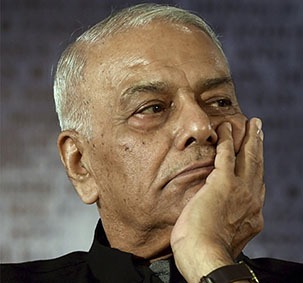MUMBAI, (Reuters) – One of India’s best known politicians, former finance and foreign minister Yashwant Sinha, quit the ruling Bharatiya Janata Party (BJP) yesterday, saying Prime Minister Narendra Modi’s party was undermining democratic institutions.
Sinha, who served as a minister in the first BJP-led governments headed by Atal Bihari Vajpayee in the late 1990s and early 2000s, has frequently spoken out over how the Hindu nationalist party has evolved since then.
“Democracy in India is in grave danger,” Sinha said, announcing his decision to quit at a meeting of a new political action group attended by several opposition politicians in Patna, the capital of the northern state of Bihar.
“From today, my relationship with BJP is over. I’m severing my ties with the party,” Sinha said.
“I’m not going to be a member of any other political party,” he said, adding, “My friends and I will lead a movement to save democracy in India.”
Sinha delivered his broadside as Modi prepares to lead the BJP into a general election due by next year, with high hopes of securing a second term.
Aged 80 and no longer active in electoral politics, Sinha has criticised the Modi government on a range of issues, most recently through an open letter published earlier this week.
In that letter, Sinha urged the prime minister to speak and act more forcefully on vital issues, including recent horrific rapes that have reflected badly on the BJP.
In one case party members had appeared to support the Hindu men accused of raping an eight-year-old Muslim girl, and in another case in the northern state of Uttar Pradesh a BJP lawmaker is alleged to have raped a teenager.
Sinha also said that India’s religious minorities had become alienated, and the weakest sections of society, the scheduled castes and tribes had been “exposed to atrocities as never before” and the guarantees given to them in the constitution were threatened.
Sinha, whose son is a junior minister for aviation, derided the government for making “tall claims” over India’s status as the world’s fastest growing major economy.
Aside from the plight of farmers and small businesses, high youth unemployment, and an increase in banks’ bad loans, Sinha noted savings and investment had fallen drastically over the past four years.
Sinha had also taken issue with the government over Chief Justice Dipak Misra. Four Supreme Court judges made an unprecedented move by publicly airing their misgivings over Misra in January.
On Friday, seven opposition parties moved to have Misra impeached for bending to political pressure and other shortfalls in his conduct.










